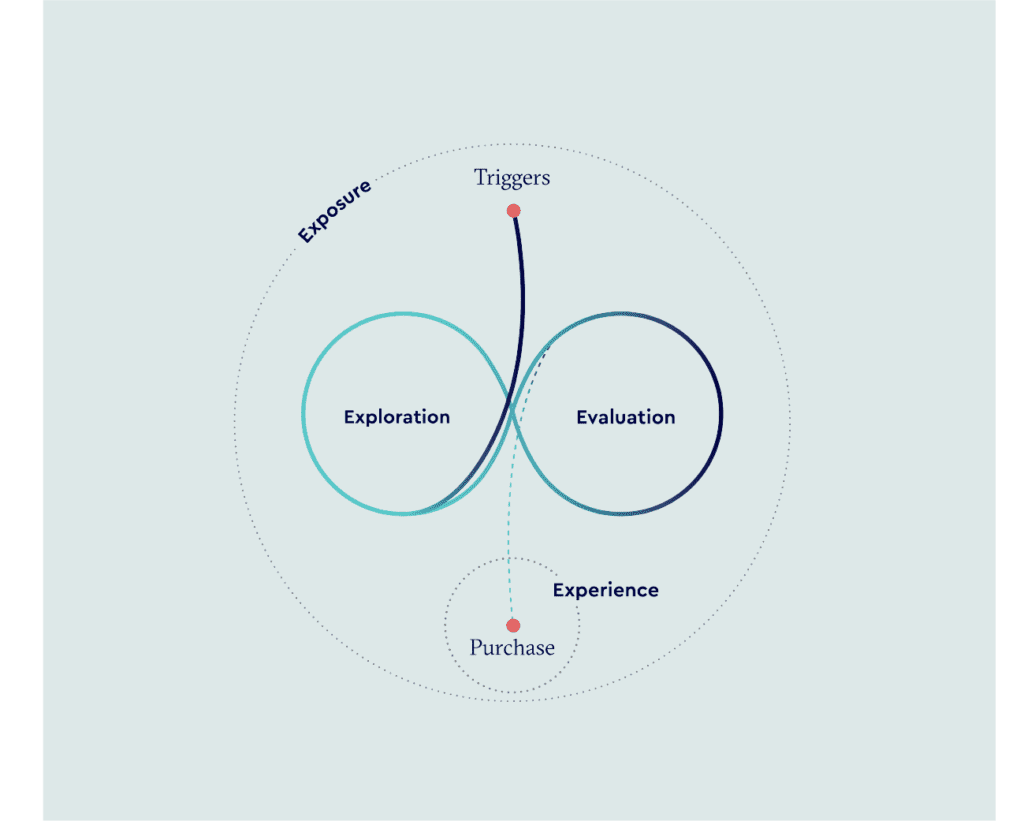
Content Marketing Agency
As Manchester-based content marketing specialists, we pride ourselves on producing compelling content that cuts through the noise. We use our insight to identify opportunities and build award-winning digital marketing strategies that bring in traffic and get your website ranking.
Publishing fresh content is a key part of SEO. It’s a huge deciding factor as to whether your website will be successful or not. And, with leading companies using content marketing to drive 6x more ROI while spending 62% less, ensuring that your strategy is top-notch is crucial.
From an SEO perspective, content rules the roost. But churning out piece after piece of optimised content, blogging every day, social posts, etc., doesn’t cut it anymore. As the typical internet customer has evolved, so too have marketing tactics.
At Embryo, our competitive nature means we take a results-driven approach to win maximum returns. We supercharge your digital presence without overcharging, giving you standout content that will achieve exactly that for your brand.
Before we get into what our content marketers can do for you, we’ll quickly take you through the basics.
Welcome to the world of content marketing.
Content Is The Key To SEO and Business Success, It’s Vital You Get it Right.
Our content writers can help you turn traffic into conversions through persuasive, optimised copy. Get in touch to learn more today.
Burgess Pet Care
Burgess Pet Care
-
30.3
ROAS from paid social
-
440%
Increase in online transactions
-
346%
Increase in revenue


What Is Content Marketing?
Content marketing is all about producing high-quality content that is relevant and useful to your audience. It is the proven practice of generating interest in your business and its products/services by creating and sharing relevant articles, videos, podcasts, and other media to engage them.
For this reason, you could say it’s the one core marketing strategy that puts the customer first, at the centre, and pivots around their needs…
With a major business benefit, of course.
The logic behind content marketing is this. If your business puts out useful content on topics related to what you’re selling, the people that stumble across it – either coincidentally or those actively searching for it – will:
- Immediate win – Be hooked, with a primed intention to buy or enquire further
- Long-term win – Come to associate your brand as an authority on the topic and be more willing to seek out and engage with you in the future
Though option 1 is a definite possibility, the scenario of option 2 is where most content marketing lands. The saying amongst marketers, when comparing the goals of content-forward approaches to other results-driven types of marketing such as pay-per-click (PPC), for example, draws a distinction: ‘content resonates, advertising saturates’.
In this way, content marketing is mostly considered a long-term strategy, designed to boost your brand’s digital presence over time and ultimately drive targeted traffic to your website.
-
62%
Leading companies use content marketing to drive 6x more ROI from their marketing while spending 62% less (CMI)
-
5%
Only 5% of B2C marketers have no plans to develop a content marketing strategy, showing that the vast majority view it as a worthwhile investment (CMI)
-
68%
68% of online experiences begin with a search engine, meaning there is claimable traffic out there on the SERP, providing you rank (Brightedge)
Building Your Content Strategy: Things to Consider
As a multi-award-winning digital marketing agency, we know what it takes to create brilliant content marketing strategies that work.
At Embryo, we believe that an effective content marketing strategy should seek to be holistic to best capture online traffic. It should cast a wide net to scoop in the target audience, knowing full well that they’re not all hanging out on one single digital platform.
Plus, there is behavioural science at work here, known as the messy middle, which we’ll cover in more detail below. But as a quick note, it’s an update to the traditional buyer’s journey with the brains at Google demonstrating how customers are unlikely to part with cash without exploring and evaluating a bunch of different sources first – comparison sites, Google reviews, YouTube unboxing videos, other competitors on the SERPs, etc.
Successful content marketing, then, is not a strategy created in isolation. Instead, it relies heavily on other online marketing disciplines such as SEO services and social content to bring customers to your site.
It includes blogs, newsletters, email marketing, and infographics. It’s social media. It’s videos, podcasts, and eBooks. It’s what gets your brand out there – makes it familiar, and recognisable – and you (or your content marketing team) will need to experiment with which content type best matches what your audience is after.
Does your website drive enough traffic, or could your content strategy be doing a lot more? Results-driven content is what we’re known for here at Embryo, and we’re only a buzz away if you’d like to get started.


Types of Content Marketing
Done right, content marketing is extremely effective when it comes to lead generation. Everybody’s doing it, so doing it 10x better is really the standard if you are to stand a chance of your efforts paying off.
If you want to beat the odds, it’s vital that you actively experiment with the many different types of content marketing available.
- Web content & blog posts
- Social media posts
- Podcasting
- Infographics
- Newsletters & email marketing
- Video marketing
- Case studies, testimonials and reviews
- Whitepapers
Though there are quite a few, each option comes with pros and cons, being more or less effective depending on your intended goals and the target market you’re after. The key thing to remember when exploring the various content types is that each one has a purpose. They can be used together to create a cohesive content marketing strategy, or separately to achieve specific goals. Below, are the big hitters in more detail.
Website Content
Web content is typically the bread and butter of a brand’s online presence. With your website being the usual destination for where you’re trying to funnel traffic, content marketing can be especially helpful in adding value.
-
Web Pages
The foundation of your website will be its core web pages, such as the homepage, service pages, how we work, etc.
SEO best practices will be vital here, and it’s typically where businesses will work with a digital marketing agency to get specific pages optimised to rank on the search engine results pages (SERPs).
-
Blog Posts
Blogs are extremely useful to content marketing, as well as SEO, as they are valuable to both Google and the customer.
Whereas the content on your core web pages typically remains static for longer periods – for example, once you’ve written your About Us page, you’re unlikely to change it for a while – blogs give you the opportunity to regularly update your site with new SEO-friendly material.
New content signals to Google that your site is not dormant but still active. This is helpful for ranking.
Plus, blogs can be great lead-generating machines – especially for small businesses. Well-written blog content will attract new readers. This means greater traffic across your website as these readers will go on to explore your site further should they find your content useful. This could ultimately lead to greater conversion.
-
Infographics
Infographics are everywhere on the internet. They are creative visual representations of data that help users understand complex concepts quickly.
Infographics are useful on your website and can be repurposed on other platforms, such as through social media marketing.
They boost engagement, and other bloggers may want to use/share them also in their own posts. In this way, infographics can help to boost the visibility of your brand so it’s important that they look good.
There are websites, such as Canva, that have made graphic design far more accessible for the regular person, but if you aim to have a more sophisticated look for your brand – and if you have the budget – most businesses will seek the expertise of a qualified designer with experience in graphics software.
-
Case Studies and Reviews
Case studies and reviews are also great for giving a voice to your clients. They also are effective for showing real-life applications of how your products and services are being used in the real world.
A quick conversation with your clients to get their feedback and permission is all it takes to start adding their experiences of your business to your website.
For a good example of case studies in action, check out the amazing results we have won for our clients on our Case Studies page.


Video Content
Videos have become increasingly popular since the rise of YouTube and, more recently, TikTok. As video content is visual, it’s far easier to digest than text alone – meaning when it shows up on someone’s timeline, it’s more likely to get attention.
When creating video content, make sure it’s high quality, interesting, and snappy. You don’t need to spend hours editing footage or writing scripts; there are plenty of tools and social platforms available to create professional-looking videos quickly.
-
78%
Of digital marketers said videos had directly increased sales (source: Hubspot)
-
86%
Said videos helped to boost traffic to their website (source: Hubspot)
Social Media Content
Coming as no surprise, social media is a highly effective form of content marketing for reaching your customers – especially if your business model is business to consumer (B2C).
You can find pretty much anyone on social media these days, so if your business has no presence where a big chunk of your audience is, you’ll be missing a huge opportunity.
Customers more readily shop on social media now, as well as interact with brands, expecting a more immediate response.
By keeping your company’s profile up to date, you can more agilely keep your audience in the loop with your brand, alerting them of new content, exciting updates, and promotional offers.
Social media comes in two forms: organic (non-paid) and paid advertising.
-
Organic Social Media
Organic social media is a no-brainer for building an online presence – especially if you’re on a budget. It refers to free content (posts, photos, videos, memes, stories, etc.) that is shared across feeds.
In terms of organic reach, the people who will see this content will be:
- Your followers
- Your followers’ followers (if your followers choose to share your post)
- People following any hashtags you use
It is a brilliant route to showcase your brand’s personality and get immediate engagement with customers.
-
Paid Ads
Paid advertising (or paid social) is a core social media service and can be effective in helping you to position yourself in all the places you want to be seen. It can be costly, but if done right highly profitable – being a great way to generate new leads.
Hubspot conducted a recent study to test which platform had the best ROI, with Facebook coming out on top:
- Facebook: 40% of marketers said paid ads on FB had the highest ROI
- Instagram: 30%
- LinkedIn: 10%
- YouTube: 8%
- Twitter: 7%
- Snapchat: 2%
Paid ads can be targeted, meaning your campaigns can be filtered (age, location, keyword phrase, etc.) to attract the most relevant ready-to-buy users for your business.
Paid ads can be seen in many places online, including on social media, landing pages, banners, and sponsored content.


Content Marketing and SEO
Content marketing works because it helps people solve problems. The customer is put first, and the content is built to match what they’re seeking.
When a person has a problem, they turn to Google (83% of market share) and then click through to the most relevant or attention-grabbing link to get answers.
Here’s where SEO comes in.
SEO stands for search engine optimisation. It’s about making sure that your website ranks highly for related keywords on Google (or another search engine). This way, when a potential customer is browsing or seeking answers to questions related to something you sell, your website will appear as a relevant option for them to explore.
Therefore, the goal of SEO is to rank your website as high as possible so that people can find your page easily. Of course, all of your competitors will have the same goal so climbing the SERPs is not always straightforward and requires time and expertise. Like content marketing, SEO is a long-term strategy, but one that can bring massive benefits to your business’s staying power.
It cannot work by itself, though, and needs content to help match potential customers’ search queries to searched-for keywords.
Through targeted optimisation techniques and technical tune-ups, a qualified SEO expert will use content – be it web pages, blogs, articles, videos, etc. – to drive traffic to your website and keep its performance high.
Want Next-Level Content?
At Embryo, we offer a FREE 30-minute SEO consultation. In it, we will show you how your website is performing on Google, and provide you with a level of insight that would usually cost £1000s of pounds.
Call us on 0161 327 2635 or email our team at [email protected].

"From the very start, Embryo understood our goals, and their campaigns have exceeded our expectations. We're delighted to work with the team and look forward to furthering our success in 2023.”
How Content Impacts the Messy Middle
Essential to content marketing, the messy middle is a model developed by the brains at Google following meticulous research and data gathering. It adds a new spin to the traditional buyer’s journey.
Well, thanks to Google’s research, the old journey is old news – quite frankly!
With the rise of the personal computer and, even more so, the smartphone, the past two decades have seen the internet quickly become embedded in our everyday lives. It’s everywhere, and we’re all on it, with different demographics hitting record internet usage.
The amount of content available now is seemingly infinite, with there officially being more phones than people to keep everyone within reach.
With this in mind, the team at Google have demonstrated the impact that this tide of super-accessible and immediate information has had on how we make purchase decisions.


So, What Exactly Is the Messy Middle?
Google defines the messy middle as ‘an updated decision-making model’ to the traditional buyer’s journey.
- In traditional purchase funnels, the consumer moves in a linear fashion through three stages:
- Awareness
- Consideration
- Decision
At the final stage, a decision is made and they either purchase your product or exit the funnel empty-handed.
With the Messy Middle, this all changes. Once the potential customer enters the messy middle, they flit between the exploration and evaluation stage mulling over their options, and using multiple sources for help.
As these customers have more information at their fingertips than ever before, the power balance in most sales conversions has shifted. Loud, in-your-face sales tactics are declining in impact as customers are being influenced more by brands that they trust and that are helpful.
In this way, the brands that are dominating the messy middle – by this, coming out on top during the exploration/evaluation loop of themselves vs their competition – are the ones that have adapted their sales tactics from selling to helping. Content marketing is the kickass strategy that does the lion’s share of legwork here.
Need a Fresh Take on Your Content Marketing Strategy? Let’s Talk
At Embryo, we are an award-winning full-service digital marketing agency based in Manchester specialising in lead generation, web design, SEO, social media and content marketing.
If your content marketing strategies haven’t quite met your goals or you’re wondering how to give your audience something new to get excited about, then let’s talk.
BCB Group
Using a modern, multi-channel marketing strategy to transform a business into an authority in an emerging market
-
149%
Increase in page views
-
11.7%
Decrease in bounce rate
-
97/100
Core Web Vital score
-
67
Position 1-3 keywords
Content Questions Answered:
-
What types of content are most effective?
Hannah: The most effective content is that which is longform, well-written, well-linked and engages the reader on every level. It matches (or uses related words) the audience’s searches, and provides them with answers to the questions they are searching for. Expertly written content highlights your knowledge within a specific area, and why your products and services are the ones for your audience.
-
How do we measure content’s influence on sales and revenue?
Hannah: Did a reader click on an ‘Enquire Now’, ‘Find Out More’ or ‘Book A Consultation’ button? Did their user journey see them read a blog about a product you sell, and then add that product to their basket? Did they engage with a social media campaign and decide to take you up on that ‘must have’ service? It’s pretty simple and Google Analytics and the right tracking can help.
-
How do we measure the effectiveness of content marketing?
Hannah: Well, that all starts with your goals. What are you trying to achieve with your content, and how do the results match up? If, for example, you want people to buy the latest television from you, how many people engaged with your email marketing campaign (or latest blog) on the topic and then went on to buy said TV from you? Setting goals and tracking conversions is of the utmost importance, can help you to see what is and isn’t working, and therefore, produce the best possible outcome.
-
What should we stop doing?
Andy: You should stop using other, less effective SEO agencies!
-
What’s the content marketing technology stack?
Hannah: There’s a multitude of technologies we use here, but for starters, Frase, Ahrefs and WordPress are our go-tos. Frase and Ahrefs are fantastic for keywords, topic areas, research and keeping up with the latest trends within various industries, and WordPress is how we upload the majority of our content.
-
Why are companies using content marketing? What are the benefits?
Kara: Content marketing isn’t just about exciting and engaging copy anymore (though it’s still important!). Content marketing can shape and enhance your company’s identity, while also supporting your SEO to tell search engines your site is the one it should be showing in search results.
-
How can I get my colleagues to share content for the company?
Kara: The short answer – make it worth sharing! Content made by your company is likely to be something your team are actually interested in, so as long as what you’re creating is relevant, engaging, useful and shareable to the people who are closest to it, you’ll be one step close to whipping up that viral storm.
-
How often should I create content?
Kara: Whenever you can! Content can be a fantastic resource as long as you keep it relevant or up to date. That means you don’t have to put together an essay from scratch every day, but keeping your content fresh is always a step in the right direction.
-
How do you make content exciting or appealing?
Kara: That’s what we ask ourselves every day. For some topics, it’s easy, for others, not so much. The key is to put yourself in the mind of your target audience (even if they are nothing like you), and ask the questions they would ask. Of course, some artistic flair always helps, but even if you’re not the world’s greatest novelist, you can still make exciting content.
-
How can I leverage existing content in my content marketing strategy?
Andy: If your existing content isn’t ranking highly on Google, that doesn’t mean you should give up on it. Existing pages can be SEO optimised with an injection of fresh content that’s valuable, in-depth and full of proper links and keywords. Old pages can even be transformed into content pillars or “main hubs,” which will link out to several “sub” pages relating to that topic. Those pages will then link back to this main hub, vastly improving the SEO performance of the page.
-
Our company wants to bring in more sales leads. How can content marketing help us do that?
Andy: SEO-optimised content will help your website rank higher on search engines for specific keywords, getting your business in front of people who are quite literally searching for your product or service. Those top positions on Google are prime real estate: the No. 1 organic search result is 10 times more likely to get a click compared to No. 10 result. You can then wield the power of CTAs (call-to-actions) to convert these website visitors into customers.
Alternatively, content can simply serve to inform people about a particular topic without trying to force a sale. This can still be an effective tactic, though. Providing value to readers establishes a relationship of trust between them and your brand, planting the seed for a conversation further down the line.
-
What are the must-haves when building a content marketing strategy from scratch?
Thom: You need to have a clear understanding of everything your client does and what they want from their campaign. It’s important that you’re on the same page with them when it comes to their tone of voice and general style, and you need to make sure you’ve got everything you need to conduct thorough and meaningful keyword research.
-
When did content marketing start?
Thom: Most people say that content marketing began in the 19th century, when literacy levels and mainstream printing made information sharing more accessible than ever. But content marketing as we know it today began in the 1990s, when marketing focus shifted towards the new digital age and the even more profound ‘democratisation’ of information.
-
Can content marketing be used for B2B and B2C brands?
Thom: Absolutely. While the tone of voice and language may change between B2B and B2C marketing, the principles remain largely the same. You need to write persuasively and with a clear idea of who it is you’re writing for. Different audiences will bring different knowledge and understanding of the given subject matter with them, and knowing that will inform how you write for your client.
-
How to communicate strong opinions without offending?
Thom: It can be difficult, but it’s always good to avoid writing anything too offensive or inflammatory. If you’ve got a strong opinion, however, the best thing you can do is to make sure it’s clear that what you’re communicating is an opinion. And always welcome people to express alternative opinions!
-
Content marketing is ongoing – how do you sustain momentum?
Hannah: Think about what drives people to your content in the first place and create a hook that keeps them coming back for more. Are they on your website because they have a personal connection to your brand, are they looking for information they know only you can provide them with, or are they simply there to learn more about who you are? Create content that matches all of these needs, and makes it easy for them to engage more, with CTA’s that encourage them too.
-
Where is content marketing going?
Hannah: Capitalising on micro moments, with targeted content that instantly meets their needs.
Dynamic content.
-
How can content marketing help address our target audiences throughout the customer purchase journey?
Hannah: This all relates to micro-moments, and is dependent on what stage of the customer buyer journey they’re in. Say someone is interested in buying the latest phone. To get their interest, you may run a PPC ad or social media campaign that promotes it. Then they’re on your website. Descriptive content that highlights its benefits, the offers you have and why they should buy from you will help convince them of your offering, and turn them into leads and conversions. Along with integrating reviews, demos and FAQs, you’re onto a real winner.
-
How does content marketing generate leads?
By being just what the customer is looking for. By understanding their needs and pain points and offering solutions that are clear and beneficial. By showcasing your products, services and expertise in novel and creative ways, and capitalising on the latest trends.
-
How do you integrate SEO into your content?
Kara: Aside from what you’d expect – keywords, locations, phrases – optimising for search engines means being the best at what you do. Long-form, educational, relevant content that gives users what they want is exactly what Google and other search engines want!
-
What do you think are the essential components of good web content?
Kara: An understanding of the topic, useful and relevant answers to real questions and an engaging, well defined tone of voice! There are hundreds of elements that make up good web content, these are just some of the most important ones!
-
Why are some companies successful with content marketing while others are not?
Kara: Some organisations see content as an afterthought and don’t put in the time or graft it needs. Short content that doesn’t really tell you or your users anything of value won’t get you anywhere, even if it’s stuffed with keywords. Taking time to learn your topic and give users something of note will get you a long way.
-
How do you convince all levels of an organisation to move towards content marketing and away from campaign to campaign?
Kara: It’s pretty simple, as the results are right there! Seeing the impact content marketing can have on your SEO, and your business identity overall is massive, and will get you closer to your business goals.
-
How long will it take to see positive results from building great content?
Andy: Like we tell our clients, it usually takes around three months to see noticeable results from our content strategies. However, it depends on the quality of the content, the quality of your competitors’ content, the search volume of your target keywords and the level of competition for your target keywords.
-
How do we convince the management team that content marketing works?
Andy: By showing them the stats: companies with blogs tend to get 67% more leads than those who don’t have a blog; inbound marketing close rates are 8 to 10 times higher compared to those of outbound efforts; and companies who deploy content are seeing 5 to 10% better retention rates. Or, you can look at all the great results we’ve gotten for our clients here at Embryo.
-
Where does Embryo come up with our content ideas? Why is writing long-form content such a big part of what Embryo does? What are the editorial and commercial benefits of creating interactive content?
Andy: Remember in Dexter’s Laboratory when Dexter would mix all the chemicals together in his lab? That’s basically how our content is created. Our content ideas are formulated by a mix of keyword research, competitor research and top-secret copywriting tools, as well as a healthy dose of our content team’s creative ingenuity. The reason we focus on long-form content is because that’s what Google values (and rewards with higher SERP rankings), so long as the content provides the information that their search users are looking for. Long-form content will help to position your brand as a voice of authority within your field which, in turn, makes you a more attractive choice for potential customers.
-
How do you decide what topic/subject to write on?
Andy: Our expertise and experience allows us to find and choose topics that will get our clients results. If a client exists in a particularly complex or niche industry, then we’ll get input from the client themselves to ensure the content is up to scratch. In most cases, we decide the direction while the client helps us fill in the blanks. We like to think of ourselves as the doctors and our clients as the patients.
-
Our organisation is new to content marketing, so where do we start?
Thom: Start by producing as much content as you can. Get a blog section up and running with frequent posts and start aiming to add to your key services pages and homepage. Find a keyword research tool you like and start learning about how you can optimise the quality content you’re generating!
-
How do we determine whether the company should have a content platform?
Thom: Does the company want to engage with customers and users, drive traffic through organic search, and push for more on-site conversions? Then content marketing is going to be the right fit for you.
-
What do you enjoy most about content writing?
Thom: When writing content, whether for a range of different clients or just on one subject matter, you learn a great deal about whatever it is you’re writing content about as a matter of necessity. I love coming away from something I’ve written with a detailed understanding of something I never knew about!
-
Why is having directors buy into content marketing so important?
Thom: Because content marketing requires commitment and patience in general. Producing thousands of words of long form content isn’t easy – it takes time and hard work. Also, content is a long-term investment and you’ll only begin seeing your best results months down the line. Making sure your directors understand this and are committed to the campaign is crucial.
-
What tone should I use?
Hannah: This is dependent on your brand’s personality, values and what you want people to say about you. A good place to start is competitor research – how are your rivals presenting themselves, and what aspects do you like and dislike? Then think about what makes you unique, what your strengths are and how your company culture feeds into this. Feeding this all into your content will help create that personality that readers will love to engage with.
-
What content management systems are you familiar with?
Hannah: WordPress and a few, bespoke client CMS platforms.
-
What is your proofreading process?
Hannah: The way I proofread is by using the ‘Suggesting’ function on Google Docs, so that the writer can see their errors and learn from them, while correcting their own work. I check for grammatical errors, whether key client information is correct (e.g. phone numbers) and whether links are suitable (i.e. no competitors).
-
What is content marketing not?
Hannah: An excuse to write rubbish, or pester potential clients with information they don’t want. Content marketing should always have the customers’ best interests at heart, and provide useful and actionable information.
-
What is the best length of content?
Kara: That depends entirely on what you’re using it for, but as a rule of thumb, the longer the better as long as it’s useful, rich and well presented! Around 2500 words is the average number of words on a position #1 ranking page, although it could well be more in 2020 and beyond, but if you can get more on there, do, as content is only becoming more and more important!
-
How to sell the value of content marketing to sales?
Kara: Again, it’s easy – the results are there! Showing your sales teams the impact high-quality content can have on your search engine rankings is all it takes. The numbers do not lie, but it’s the words that’ll get you there.
-
How do you plan and schedule your work?
Kara: At Embryo, we use Notion to plan what we’re doing and when we’re doing it. However, we’ll also liaise closely with the SEO team to work out what kind of content and topics are really going to give our clients the best results and help them reach their business goals.
-
Why does content marketing fail?
Kara: Content marketing fails because organisations half-arse it! Content that doesn’t actually add value to the lives of your users will fail, because search engines don’t see the point of it! More to the point, they’re right – content done badly and without purpose, value or intent, is completely pointless, and that’s when content marketing fails.
-
What’s the difference between audience and traffic?
Andy: Traffic is the number of people who visit your website, while audience is the people you’re currently targeting and are trying to target.
-
What’s the Difference Between Content Marketing and Social Media?
Andy: The main difference between content marketing and social media is the length of the content. Social media (particularly Twitter) calls for short and snappy content that can be easily digested and shared by users on those platforms. Content marketing, on the other hand, is geared towards search engines, where in-depth, long-form content rises to the top (literally).
-
How can I use content marketing to increase brand presence in the most efficient way?
Andy: By targeting long-tail keywords. There may be less search volume with these longer keywords, but the competition is much lower so it’s easier to rank high for them. Plus, if you’re ranking highly for a longer, more specific search term, you’re targeting people who are further down the sales funnel and are more likely to convert. Trying to target shorter (but more popular) search terms is inefficient due to the sheer competition you’ll face.
-
What are the best ways to build an audience with content?
Andy: Provide value to your audience. Give them informative, educational and insightful content. Answer the questions that your audience are asking. Cover topics that they’re interested in. Deliver a wide range of content and explore different channels – don’t just upload it to your website or blog, but give your audience exclusive content via email or as a physical product. Most importantly, deliver quality content on a consistent basis.
-
How can we make something go viral?
Andy: Honestly, going viral shouldn’t be your goal. As an avid social media user myself, there’s nothing worse than watching a brand try to force a viral tweet or Instagram post.
Virality is all about right tweet, right time (and sometimes the right meme). Social media users, particularly those who grew up with it, can sniff out a viral attempt from a mile away.
-
How does marketing without talking about or promoting our product/service help us create leads and sales?
Thom: Content marketing is as much about providing engaging, valuable content for your customers as it is about anything else. Good content that provides value wins people over and persuades them to buy into your brand and style. It also allows you to cast a wide net when it comes to organic search.
-
Tell us something that is unique about your writing style?
Thom: Wherever possible, I like to write as conversationally as I can. This can mean being very casual and relaxed in my language and grammar – as long as I’m getting the point across and people feel like they’re really being spoken to by a human being, I’m happy! Of course, this varies from client to client and I aim to only be as casual as is appropriate.
-
Why would I want to educate my customers and help my competition?
Thom: Because people love informative and useful content. Your customers will appreciate you all the more for educative content. It’s not about helping the competition, it’s about treating your customers the way they want to be treated and gaining brand sentiment, loyalty and recall while you do.
-
How does content drive revenue?
Thom: Good content marketing is all about getting people on-site and keeping them there with informative and authoritative content that they both trust and enjoy. By supporting your SEO efforts, content drives traffic to site, increases visibility, improves user experience and pushes for conversions.






























